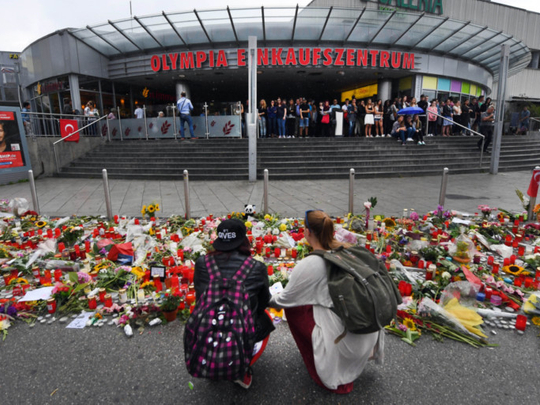
“By comparison with most other parts of the world, western Europe is a very peaceful place and is getting more peaceful by the year,” said the Guardian in its introduction to an editorial, putting the statistics in contrast to ground reality. “Context is, however, no consolation to those who have been, or who could have been, or who knew or loved, the victims of the attacks on civilians that have made western Europe a more fearful place in recent weeks. Friday’s attack in Munich, when an 18-year-old German-Iranian student turned his gun on innocent victims in a shopping mall and killed at least nine of them, is the latest. It will probably not be the last,” it said.
“Millions of people in Europe, including in Britain, will look at a shopping mall shooting, a sudden attack on a train or a murderous truck assault and imagine such things happening in their communities too. Europe’s populist, anti-immigrant and law-and-order parties were already growing stronger on the back of economic stagnation. Random acts of violence only feed that fear. But governments, like the rest of us, must hold their nerves and not make an already bad situation even worse.”
The New York Times, putting all the recent attacks in Europe in perspective, cautioned against a backlash against foreigners and appealed for a renewed focus on the refugee crisis. “First came Britain’s decision to leave the European Union. Then the horrific attack in Nice, France, which killed 84 people. Then, on Friday, a shooting near a shopping mall in Munich… These events alone would be cause for a continental nervous breakdown. But still unresolved is an even bigger threat to European stability: a failure to develop a coherent, humane plan to deal with the inexorable flow of desperate people fleeing violence and persecution in the Middle East and Africa and seeking a new home in Europe,” the newspaper said.
The Independent drew attention to the fact that the alleged gunman, David Ali Sonboly, was at least nominally a Muslim, and therefore the repercussions of the attack could be subject to a jaundiced view by the society at large. “Like the lone young Afghan lashing out with knives, [the Munich attack] can only feed Islamophobia, just as incidents in Nice, Paris, Brussels, Orlando and in Florida will do so. The approaching elections in Germany, France and the US, though so different in many ways, will have one theme in common with the British EU referendum: of societies and political systems struggling to come to terms with a disaffected population that feels excluded, ‘left behind’ and ignored by political elites. They represent a receptive audience for demagogic leaders on the make. The rise of Ukip and Donald Trump is well documented. No one would be greatly surpised if Marine Le Pen’s Front National and the Alternative for Germany party also made gains at the ballot box.”
The Asian Age in India echoed similar concerns and called for common sense to prevail in the aftermath of the attack and said: “Western security experts have of late spoken of ‘lone wolf’ attacks without adequate explanation or justification, in the process creating the scare that the friendly Muslim in the street may be a would-be assassin. A more plausible approach is to suggest that there cannot be ‘lone wolf’ terrorist attacks in this world of psychological warfare and social media combat in which brainwashing of even unknown individuals through invidious propaganda is rampant. Terrorist violence perpetrated by groups such as Daesh is a serious enough problem, and to count every act of mass murder in that analytical group is to score an own goal.”




_resources1_16a31069e4e_small.jpg)







